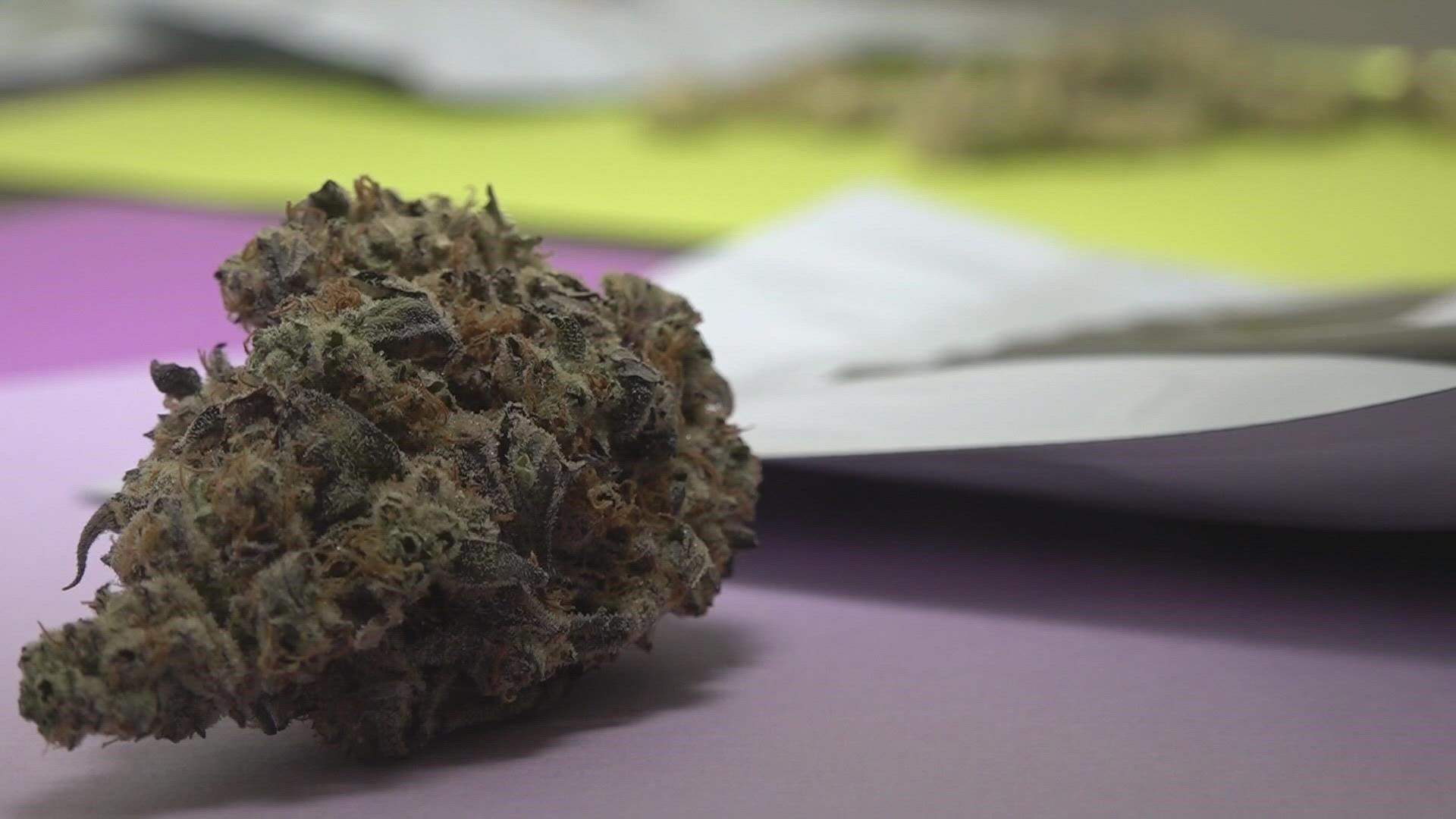Shedding Light on What Medical Cannabis Can Treat: a Comprehensive Analysis of Its Therapeutic Features
In recent years, there has been an expanding rate of interest in the healing capacity of medical cannabis. While anecdotal proof is plentiful, an extensive exam of the scientific data relating to the performance of medical marijuana in treating these conditions is necessitated.
Persistent Pain Management
Persistent discomfort administration stays a critical aspect of clinical treatment, requiring an extensive method for effective therapy. In recent times, medical cannabis has actually arised as a prospective therapeutic option for people experiencing chronic discomfort problems. The endocannabinoid system, which plays a critical function in pain modulation, has actually been targeted by cannabis-based therapies to enhance and minimize signs lifestyle for clients.

Furthermore, clinical cannabis supplies an appealing choice for individuals who experience excruciating adverse effects from conventional discomfort medicines. Its capability to address discomfort through a various mechanism makes it a beneficial enhancement to the toolbox of treatments readily available for chronic discomfort management.
Epilepsy Treatment Potential
Medical marijuana has revealed promising potential in the treatment of epilepsy, supplying a novel restorative approach for taking care of seizures in individuals. Epilepsy is a neurological disorder identified by recurrent seizures, influencing people of any ages. Traditional therapies for epilepsy consist of antiepileptic medications, but these medicines might not work for all clients and can have considerable negative effects.
Research on the use of medical cannabis for epilepsy has exposed motivating outcomes. Cannabidiol (CBD), a non-psychoactive substance located in cannabis, has been especially highlighted for its anticonvulsant residential properties. Researches have actually shown that CBD can minimize the regularity and extent of seizures in people with treatment-resistant kinds of epilepsy, such as Dravet syndrome and Lennox-Gastaut syndrome.
Furthermore, the FDA has approved a CBD-based medication, Epidiolex, for the treatment of seizures connected with these serious types of epilepsy. This turning point highlights the expanding recognition of medical cannabis as an important restorative choice for taking care of epilepsy and gives wish for patients who have not responded well to traditional treatments.
Nausea Relief Benefits
The alleviation of nausea through making use of marijuana has actually been increasingly recognized for its therapeutic benefits in various medical problems. Nausea or vomiting and throwing up are usual signs and symptoms experienced by people going through chemotherapy, those with gastrointestinal disorders, and individuals with persistent pain conditions. Clinical marijuana, with its energetic substances such as THC and CBD, has actually shown pledge in giving alleviation from nausea.

Moreover, medical marijuana provides a natural choice for individuals who do not react well to standard anti-nausea medicines or who experience severe side results from these medications. Patients undertaking chemotherapy, in certain, have reported substantial enhancements in their quality of life when utilizing cannabis to handle his response nausea or vomiting. As research study in this area continues to grow, clinical cannabis is progressively being thought about as a valuable choice for nausea or vomiting relief in numerous medical settings.
Anxiousness Reduction Impacts
Studies have shown the capacity of marijuana in decreasing anxiousness symptoms with its communication with the endocannabinoid system. The endocannabinoid system plays a vital duty in regulating emotions, consisting of anxiety, by preserving homeostasis in the body. Cannabinoids in marijuana, such as THC and CBD, interact with the endocannabinoid receptors in the mind, specifically the CB1 and CB2 receptors, to modulate anxiety-related responses.

People with conditions like generalised stress and anxiety disorder (GAD), social stress and anxiety problem, and post-traumatic anxiety problem (PTSD) may gain from the anxiolytic buildings of cannabis (Medical Marijuana near me). Nevertheless, more research is needed to establish optimal dosages, shipment methods, and long-lasting impacts on stress and anxiety administration.
Prospective for Inflammation Control
With its well-known anti-inflammatory properties, marijuana has actually revealed pledge in potentially controlling swelling within the body. Swelling is the body's natural response to injury or infection, yet when it ends up being chronic, it can add to numerous illness such as arthritis, inflammatory digestive tract illness, and even heart problem. Study suggests that the cannabinoids found in marijuana, such as THC and CBD, can assist decrease and regulate the immune feedback inflammation.
Studies have actually revealed that cannabis can communicate with the endocannabinoid system, which plays an essential duty in controling swelling. By targeting the cannabinoid receptors, cannabis substances can modulate the immune feedback, causing hospital clinic a decrease in swelling levels. This makes cannabis a potential candidate for managing inflammatory conditions where traditional therapies have dropped brief.
Moreover, cannabis-derived products like CBD oil have actually gained appeal for their anti-inflammatory residential properties, with lots of people utilizing them as a natural remedy for conditions associated with swelling. While more research study is needed to fully understand the devices behind cannabis's anti-inflammatory impacts, present findings reveal encouraging outcomes for the prospective use medical marijuana in controlling inflammation.
Conclusion
To conclude, clinical cannabis has actually shown encouraging therapeutic residential or commercial properties in handling persistent discomfort, treating epilepsy, easing nausea or vomiting, decreasing stress and anxiety, and regulating swelling. Its possible benefits in various medical problems highlight the relevance of further study and exploration right into its medical usage. The evidence recommends that medical cannabis could be an important option therapy choice for people looking for relief from a series of signs and problems.
In recent years, clinical cannabis has actually arised as a potential healing alternative for individuals enduring from chronic discomfort problems.Medical marijuana has shown promising possibility in the treatment of epilepsy, providing a novel restorative technique for managing seizures in individuals. As study in this location continues to grow, clinical marijuana is progressively being taken into consideration as a beneficial alternative for nausea or vomiting relief in different medical settings.
In conclusion, clinical marijuana has actually revealed promising therapeutic buildings in managing persistent pain, treating epilepsy, relieving nausea, decreasing stress and anxiety, and regulating inflammation. The evidence suggests that clinical marijuana could be a valuable choice treatment option for individuals seeking alleviation from a variety of symptoms and problems.